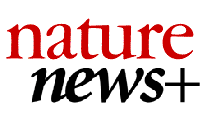

Drafting group gets down to work
28 June 1999
Revisions to the draft Declaration on Science and the Use of Scientific Knowledge and Science Agenda-Framework for Action get under way this afternoon when the drafting group starts dealing with a raft of proposed changes.
Long days - and longer nights - are expected as the group grapples with the task of trying to satisfy the demands of practically every Unesco member country. The two documents will be the most tangible outcome of the conference and are expected to help shape future science policies of Unesco and its member states .
A Central Bureau of six countries has outlined rules of procedure for the 18-country drafting group, particularly in the handling of open-ended submissions. The Introductory Note to the Agenda-Framework was separated from a longer draft document earlier in June, and is not for negotiation.
Howard Moore, the conference's secretary, says proposed changes can be submitted by national delegations outside of the group as well as by other organizations. They do not have a vote, however, and amendments cannot be submitted by individuals.
The deadline for submissions is 11.00 p.m. tonight (Monday). Moore says this "curious time" was set to allow input from this afternoon's thematic meetings. The drafting group must produce a final text by Wednesday night in time for printing and distributing to delegates before formal acceptance at the final session on Thursday.
The rapporteur-general is Peter Tindemans of the Netherlands, former chairman of the Megascience Forum of the Organization for Economic Cooperation and Development. The choice of Tindemans has been praised by many in the corridors. This will be a good test of his qualities for forging a consensus, says one delegate who knows Tindemans.
The Drafting Group is broadly representative of Unesco's membership, with 12 member states chosen from the six electoral (geographical) groups: New Zealand, India, Germany, Canada, Jordan, Iraq, Argentina, Dominican Republic, Russia, Georgia, Senegal and Tanzania.
Six more members are drawn from the conference co-sponsor ICSU (the International Council for Science). Two seats are reserved for non governmental organizations who will nominate their representatives this morning. The two intergovernmental slots have been picked up by the United Nations Conference on Trade and Development (Unctad), and to Isesco, the Islamic Educational, Scientific and Cultural Organization.
PETER POCKLEY